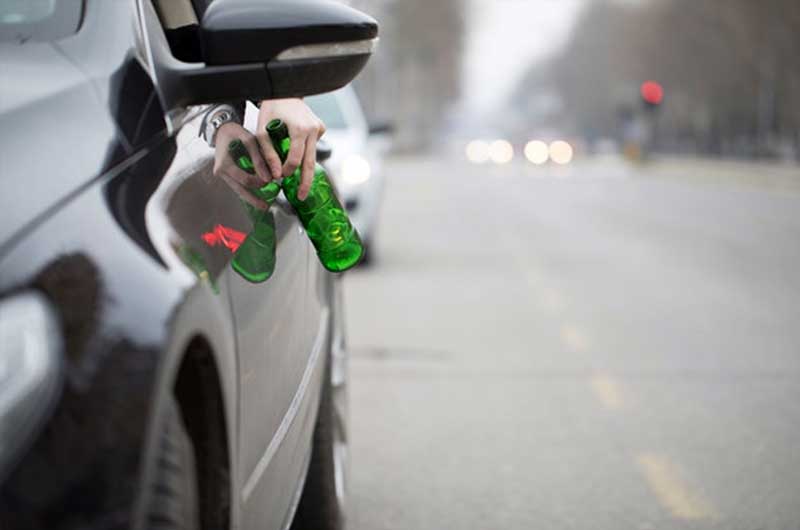There is a big difference between driving with an open container of alcohol and driving with a piece of trash. If you have been charged with an open container violation in McDowell County or another county in North Carolina, you may be aware that the difference is often lost on law enforcement. This post will offer an explanation of the open container laws of North Carolina, and offer tips for dealing with an open container charge.
The Statute
Under the statute, open container charges are broken down into two separate offenses, with different punishments for each. N.C.G.S. § 20-138.7(a) makes it a Class 3 misdemeanor for a first offense (bumping to a Class 2 for a second offense) of driving a motor vehicle on a highway or the right-of-way of a highway when you possess an alcoholic beverage in the passenger area in anything other than the unopened manufacturer’s original container AND while the driver is consuming alcohol or while alcohol remains in the body of the driver. While under N.C.G.S. § 20-138.7(a1), it is an infraction (non-moving) to possess an alcoholic beverage other than in the unopened manufacturer’s original or consume an alcoholic beverage, in the passenger area. These two are often confused and alleged improperly, and it is important to note which portion of the statute you have been charged under.
What Does it Mean?
Interpreting and understanding the North Carolina open container law is often difficult, with different answers in different parts of the state. Several portions of the statute can be attacked in court, and law enforcement officers often fail to do the proper work to establish the elements of the crime. Under subsection (a), the State must prove that the driver has consumed alcohol or remains in the body of the driver. That means that a passenger can NOT be properly charged under subsection (a). Further, the State cannot rely on “odor on the breath”, and must offer more evidence in support of a driver consuming alcohol. If you have been charged with an open container after drinking, it is important that you ensure that the State has evidence to meet its burden. The statute is very clear that an “alcoholic beverage” is required. The burden is on the State to prove the existence of an alcoholic beverage. How can an alcoholic beverage be present when you have no evidence of alcohol? That question could be the key to fighting your charge because law enforcement rarely retains evidence of the “alcoholic beverage” in question and rarely makes note of any liquid found in the container. Basically, if the “open container” found in your car is trash; you may be able to fight this offense. If law enforcement does not provide sufficient evidence of the container and the State cannot meet its burden of proving beyond a reasonable doubt that you committed the offense in question, you should be cleared of your open container charge.
Challenging a crime in court is difficult, and you should consider reaching out to an attorney to handle your case. In McDowell County, Attorney Frank McFarland has experience handling open container offenses. If you would like to discuss your open container charge in North Carolina with an attorney, call and schedule your consultation with Attorney Frank McFarland of King Law today at (828)652-3334.


